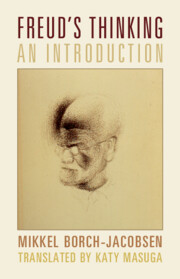Chapter 3 - Sexuality
Published online by Cambridge University Press: 21 September 2023
Summary
Starting from the mid-1890s, Freud assumed that the trauma whose memory was repressed by neurotics was of a sexual nature. More specifically, he claimed to obtain from his patients’ memories of sexual abuse suffered in early childhood at the hands of an adult pervert, most of the time the father. In late 1897, he abandoned this “seduction theory,” having realized, he said, that his patients’ memories were in fact fantasies expressing an infantile sexual wish to be fondled by a parent. This reversal, which marks the beginning of Freud’s theories about infantile perverse sexuality and the Oedipus complex, was due to his adoption of his friend Wilhelm Fliess’ speculations regarding biorythms, themselves based on Ernst Haeckel’s “biogenetic law”: the individual development (ontogenesis) of an organism recapitulates the development of the species (phylogenesis). Hence Freud’s theory of the various stages (oral, anal, phallic, etc.) of libidinal development, which was not based, as he claimed in the “Little Hans” case, on an empirical investigation of children’s sexuality but on purely speculative (and since then debunked) biological assumptions.
Keywords
- Type
- Chapter
- Information
- Freud's ThinkingAn Introduction, pp. 52 - 89Publisher: Cambridge University PressPrint publication year: 2023

